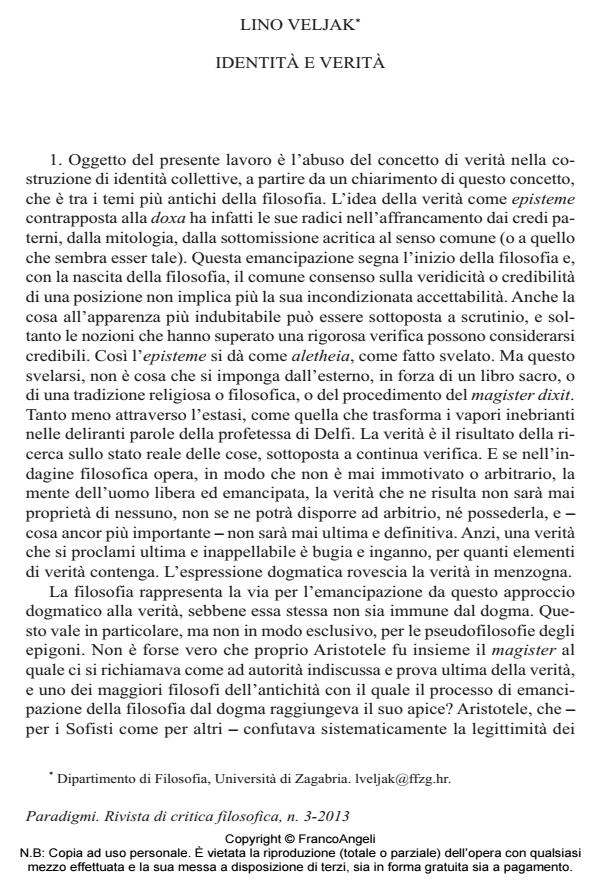Identity and Truth
Journal title PARADIGMI
Author/s Lino Veljak
Publishing Year 2014 Issue 2013/3
Language Italian Pages 10 P. 159-168 File size 87 KB
DOI 10.3280/PARA2013-003010
DOI is like a bar code for intellectual property: to have more infomation
click here
Below, you can see the article first page
If you want to buy this article in PDF format, you can do it, following the instructions to buy download credits

FrancoAngeli is member of Publishers International Linking Association, Inc (PILA), a not-for-profit association which run the CrossRef service enabling links to and from online scholarly content.
The paper is an analysis of the misuse of the notion of truth, consisting of the construction of collective identities by representing the particular as universal. This procedure finds full expression, in modern times, both in totalitarian ideologies and in post-modern typologies of individual (or individualistic) and collective identities.
Keywords: Dogma, Identity, Ideology, Particular, Universal, Truth.
Lino Veljak, Identità e verità in "PARADIGMI" 3/2013, pp 159-168, DOI: 10.3280/PARA2013-003010